
Yamoussoukro: The Hidden Gem of Côte d'Ivoire
Yamoussoukro, the capital of Côte d'Ivoire, offers a unique blend of modernity and tradition. Known for its wide boulevards and serene atmosphere, the city is a stark contrast to the bustling streets of Abidjan. It is a place where history and culture meet, providing visitors with a rich tapestry of experiences. One of the most striking landmarks in Yamoussoukro is the Basilica of Our Lady of Peace, which is one of the largest churches in the world. Its grand architecture and serene ambiance make it a must-visit. The city also boasts the Presidential Palace, with its impressive crocodile-filled moat, adding a touch of intrigue to your visit. For nature lovers, the surrounding areas offer lush landscapes and opportunities for wildlife spotting. The city's calm vibe makes it an ideal destination for those looking to unwind and explore at a leisurely pace. Whether you are interested in history, architecture, or simply soaking in the local culture, Yamoussoukro has something for everyone.
Local tips in Yamoussoukro
- Visit the Basilica of Our Lady of Peace early in the morning to avoid crowds and experience its tranquility.
- Wear comfortable shoes as you will likely do a lot of walking, especially when exploring the expansive Presidential Palace grounds.
- Bring a camera with a good zoom lens for capturing the crocodiles at the Presidential Palace moat.
- Consider hiring a local guide to gain deeper insights into the city's history and culture.
- Try local Ivorian cuisine at one of the city's traditional restaurants for an authentic experience.
Yamoussoukro: The Hidden Gem of Côte d'Ivoire
Yamoussoukro, the capital of Côte d'Ivoire, offers a unique blend of modernity and tradition. Known for its wide boulevards and serene atmosphere, the city is a stark contrast to the bustling streets of Abidjan. It is a place where history and culture meet, providing visitors with a rich tapestry of experiences. One of the most striking landmarks in Yamoussoukro is the Basilica of Our Lady of Peace, which is one of the largest churches in the world. Its grand architecture and serene ambiance make it a must-visit. The city also boasts the Presidential Palace, with its impressive crocodile-filled moat, adding a touch of intrigue to your visit. For nature lovers, the surrounding areas offer lush landscapes and opportunities for wildlife spotting. The city's calm vibe makes it an ideal destination for those looking to unwind and explore at a leisurely pace. Whether you are interested in history, architecture, or simply soaking in the local culture, Yamoussoukro has something for everyone.
When is the best time to go to Yamoussoukro?
Iconic landmarks you can’t miss
The Basilica of Our Lady of Peace of Yamoussoukro
Discover the world's largest church in Yamoussoukro, Côte d'Ivoire: a stunning basilica of peace, faith, and architectural brilliance.
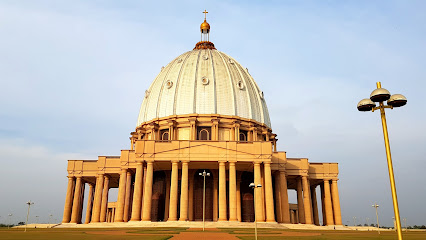
Boigny Félix Houphouët Foundation for Peace Research
Explore the Félix Houphouët-Boigny Foundation for Peace Research in Yamoussoukro, a center for peace, culture, and Ivorian history.
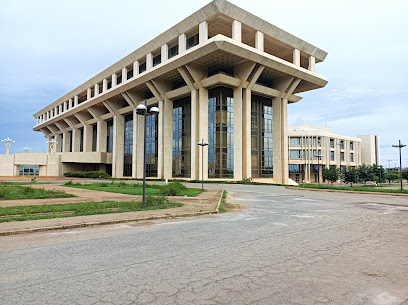
Grand mosquée de Yamoussoukro
Discover the Grand Mosque of Yamoussoukro, an architectural marvel and a symbol of peace in Côte d'Ivoire.
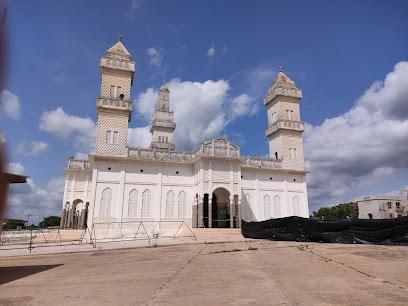
Grande Mosquée de Yamoussoukro
Discover the architectural marvel and spiritual haven of the Grande Mosquée de Yamoussoukro, a symbol of peace in Côte d'Ivoire.
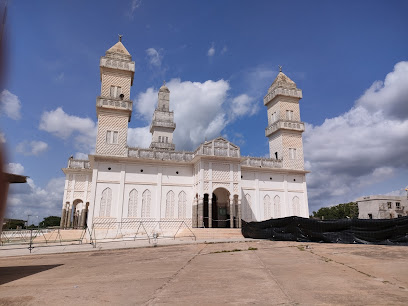
Lac aux Caïmans
Witness hundreds of sacred crocodiles at Lac aux Caïmans in Yamoussoukro, a unique blend of wildlife and Ivorian culture.
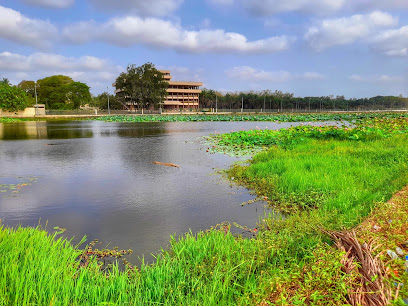
Palais présidentiel de Yamoussoukro
Witness the grandeur of Côte d'Ivoire's presidential palace in Yamoussoukro, a symbol of national pride and architectural ambition.
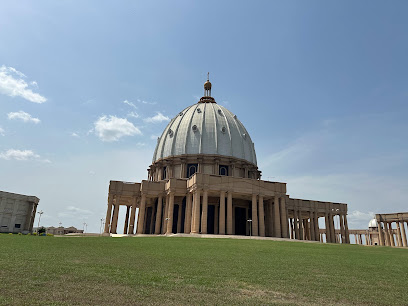
Unmissable attractions to see
The Basilica of Our Lady of Peace of Yamoussoukro
Discover the world's largest church in Yamoussoukro, Ivory Coast, a stunning basilica inspired by St. Peter's with unique African elements.
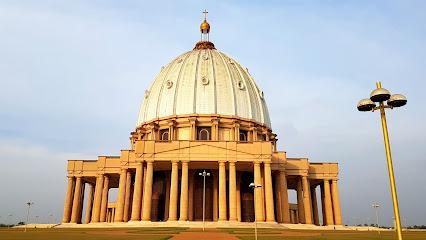
Grand mosquée de Yamoussoukro
Explore the stunning Grand Mosquée de Yamoussoukro, an architectural masterpiece and spiritual haven in the heart of Côte d'Ivoire, blending culture and serenity.
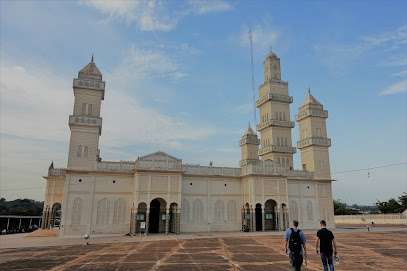
Cathédrale Saint Augustin de Yamoussoukro
Discover the architectural grandeur and spiritual significance of Cathédrale Saint Augustin in Yamoussoukro, Côte d'Ivoire. A must-see landmark!
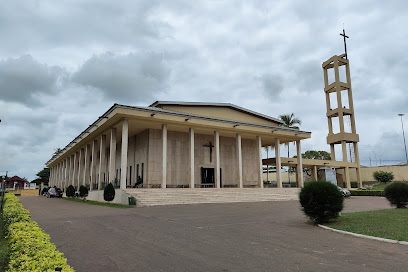
Haliat Parc
Explore the natural beauty of Haliat Parc in Yamoussoukro, a tranquil retreat perfect for nature lovers and families seeking relaxation.
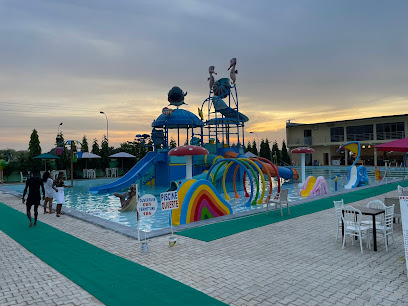
Amphithéâtre Mamie Adjoua
Explore the Amphithéâtre Mamie Adjoua in Yamoussoukro, a cultural landmark showcasing the beauty of Ivorian architecture and community spirit.
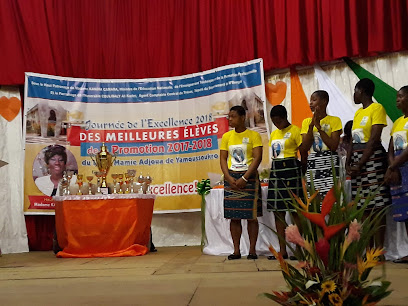
YAKRO PARC
Experience the thrill of adventure at Yakro Parc in Yamoussoukro, where fun and excitement await visitors of all ages!
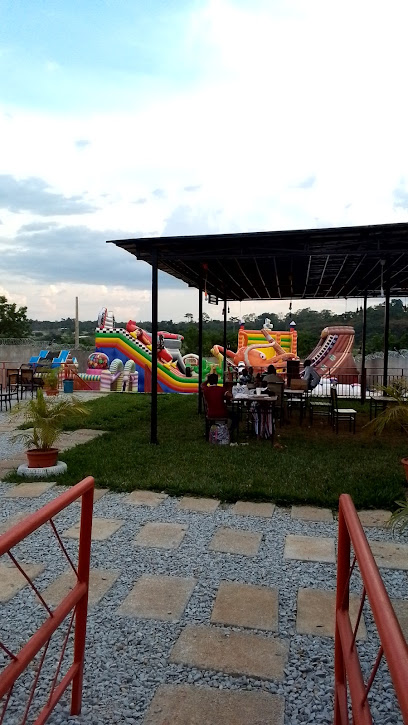
Essential places to dine
Restaurant la Brise
Discover delightful Ivorian flavors at Restaurant la Brise in Yamoussoukro - where every meal is an experience!
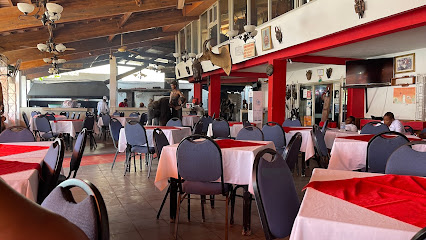
Bolikro Chez Wolf
Discover the rich flavors of Africa at Bolikro Chez Wolf in Yamoussoukro – where every meal tells a story.
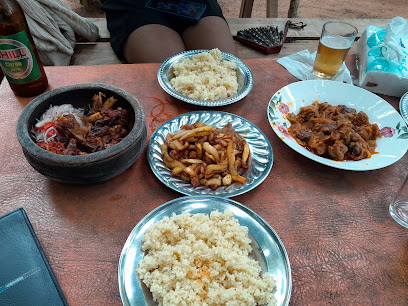
RESTAURANT Chez Chef EBY
Experience authentic Ivorian cuisine at Chez Chef EBY in Yamoussoukro - a culinary haven for tourists seeking flavorful delights.
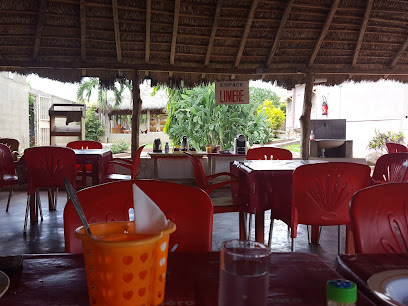
Restaurant Hôtel Hollywood Chez Georges
Experience authentic Ivorian cuisine at Hôtel Hollywood Chez Georges in Yamoussoukro—where tradition meets flavor in a cozy atmosphere.
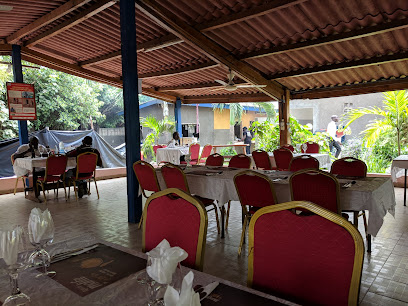
Chez Mario Yamoussoukro
Experience authentic Ivorian flavors at Chez Mario in Yamoussoukro - a must-visit culinary gem blending local cuisine with international delights.
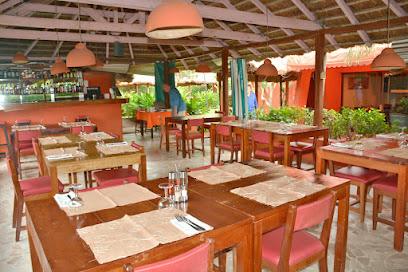
A L'Avikam
Discover authentic African flavors at A L'Avikam in Yamoussoukro—where every meal is a celebration of culinary heritage.
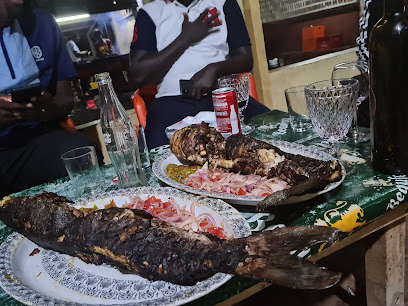
Restaurant Le ROI
Experience authentic Ivorian cuisine at Restaurant Le ROI in Yamoussoukro – where every meal tells a story.
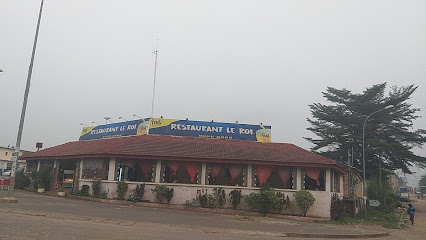
Banian
Experience authentic Ivorian cuisine at Banian in Yamoussoukro - where flavor meets tradition in a welcoming atmosphere.
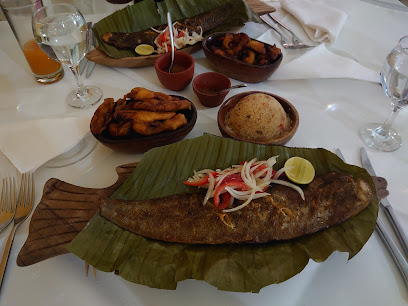
Chococha
Experience the vibrant flavors of Ivorian cuisine at Chococha in Yamoussoukro - where every meal tells a story.
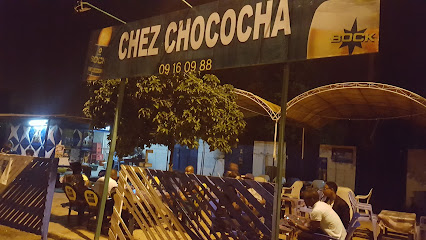
Restaurant LE FESTIF YAMOUSSOUKRO RFY
Discover authentic Ivorian flavors at LE FESTIF Yamoussoukro – where delicious cuisine meets vibrant culture.
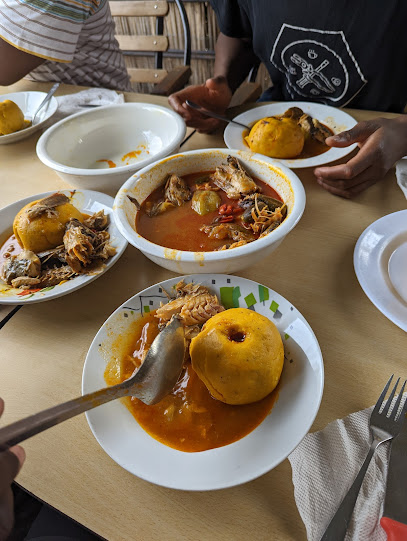
Restaurant La Terrasse
Experience authentic Ivorian cuisine and international flavors at Restaurant La Terrasse in Yamoussoukro – where every meal tells a story.
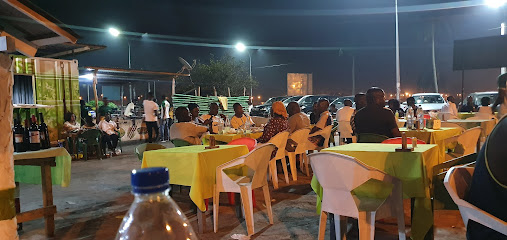
la rochelle
Experience the vibrant flavors of Ivorian cuisine at La Rochelle in Yamoussoukro - where culinary tradition meets modern flair.
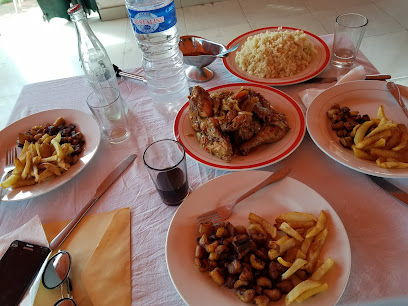
Maquis Restaurant Etoile AGNEBY
Experience authentic Ivorian cuisine at Maquis Restaurant Etoile AGNEBY in Yamoussoukro—where flavor meets hospitality.
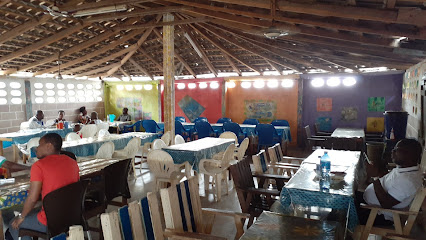
Le Village Du Piment Rejeté
Discover the rich flavors of Africa at Le Village Du Piment Rejeté in Yamoussoukro – where every dish tells a story.
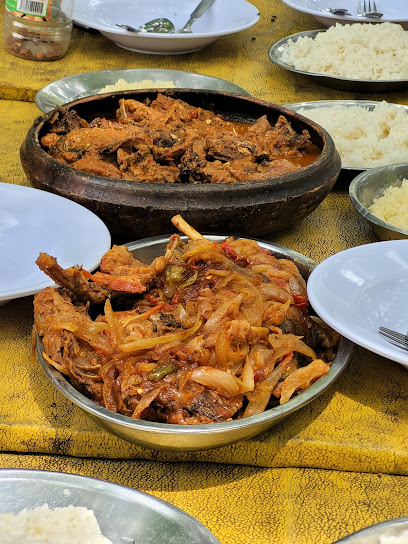
Restaurant Chez Nathalie Yamoussoukro
Discover delicious Ivorian flavors at Restaurant Chez Nathalie in Yamoussoukro - a culinary gem offering authentic local cuisine.
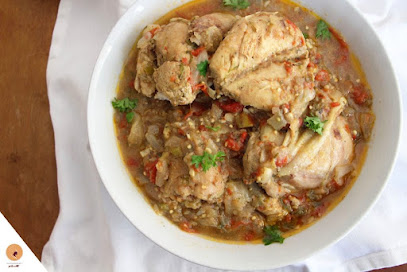
Markets, malls and hidden boutiques
Oenophile Yamoussoukro
Explore a diverse selection of wines and spirits at Oenophile Yamoussoukro, where local flavors meet international tastes.
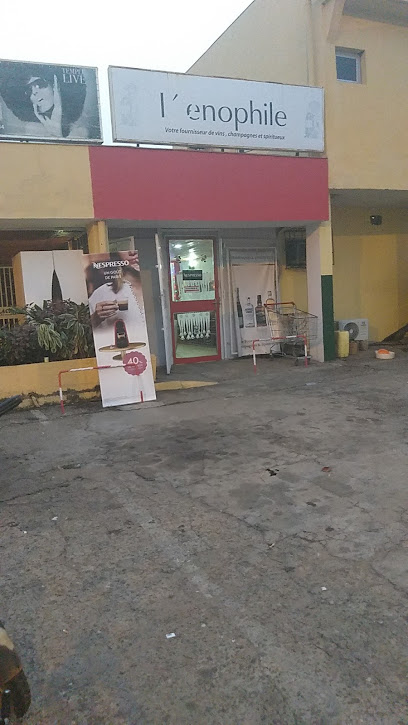
Boutique Noire
Discover the local flavors and vibrant culture at Boutique Noire, Yamoussoukro's charming supermarket with a wide selection of Ivorian goods.

SABAOTH company
Explore unique local crafts and vibrant products at SABAOTH Company in Yamoussoukro, a treasure trove of cultural heritage.
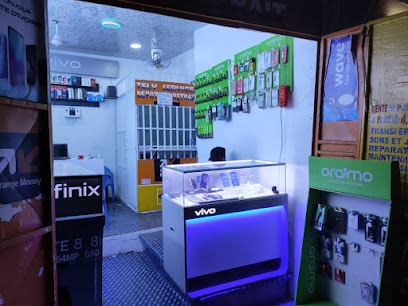
Boutique WADE
Experience the vibrant heart of Yamoussoukro at Boutique WADE, the supermarket offering a rich selection of local and international products.
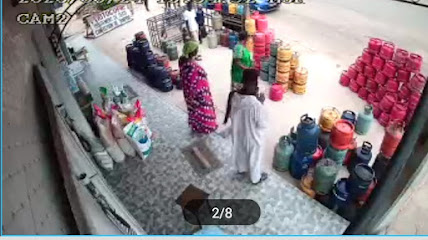
L'Optimiste
Explore local craftsmanship and vibrant culture at L'Optimiste, a boutique in Yamoussoukro showcasing the best of Ivory Coast's artisanal heritage.
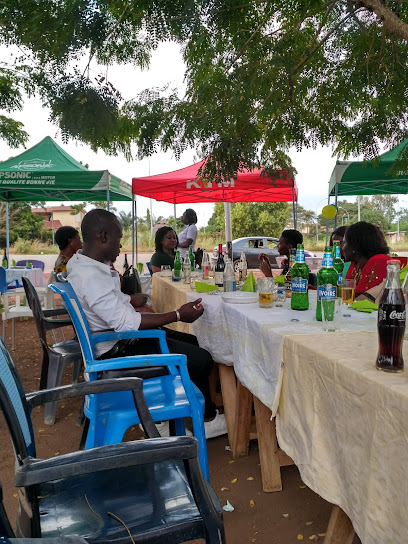
DANISTORE Yamoussoukro
Discover luxury fashion at DANISTORE Yamoussoukro, where style meets elegance in the heart of the city.
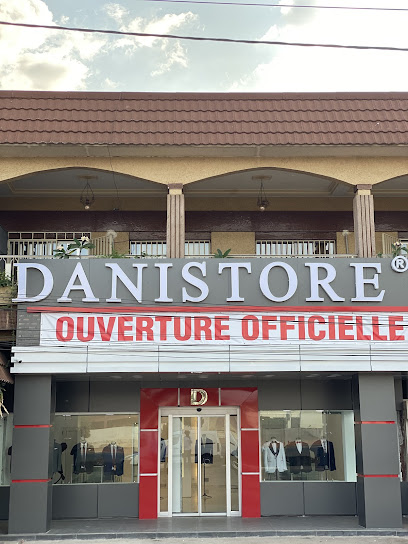
Chez Sani
Explore the cultural treasures of Yamoussoukro at Chez Sani, where local craftsmanship meets warm hospitality in a vibrant shopping experience.
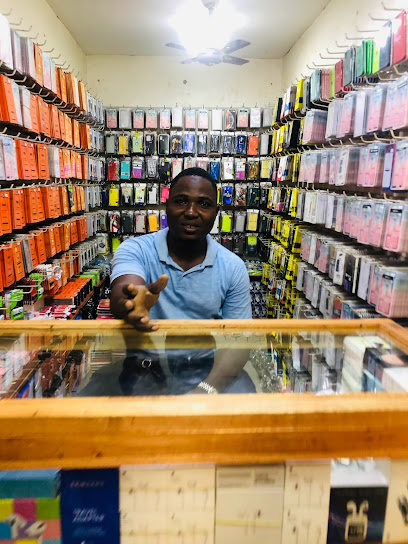
Bouba Boutique
Explore Bouba Boutique in Yamoussoukro for unique clothing that fuses traditional Ivorian styles with contemporary fashion trends.
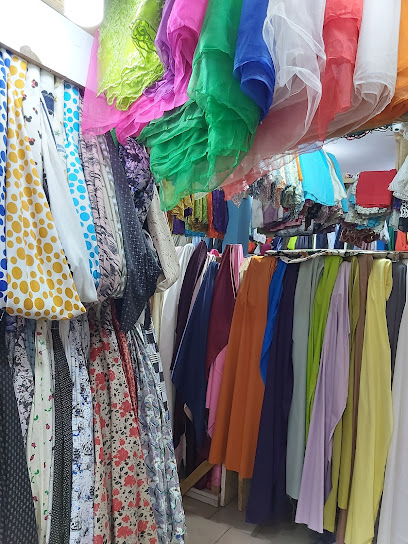
magasin JUMIA
Explore cutting-edge technology at JUMIA in Yamoussoukro, your ultimate destination for electronics and gadgets during your travels.
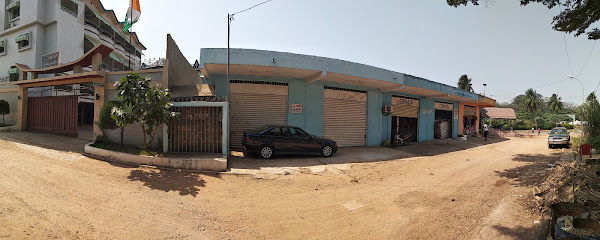
Magazin Islamique
Experience the vibrant local culture at Magazin Islamique, a unique store in Yamoussoukro offering authentic Ivorian products and souvenirs.
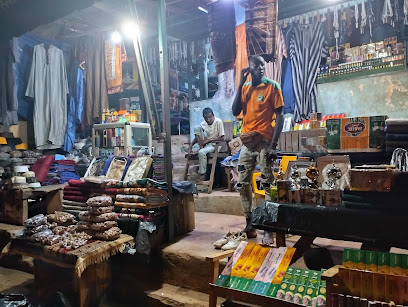
Georgina Mall
Explore the vibrant fashion scene at Georgina Mall in Yamoussoukro, where style meets culture and unique clothing finds await.
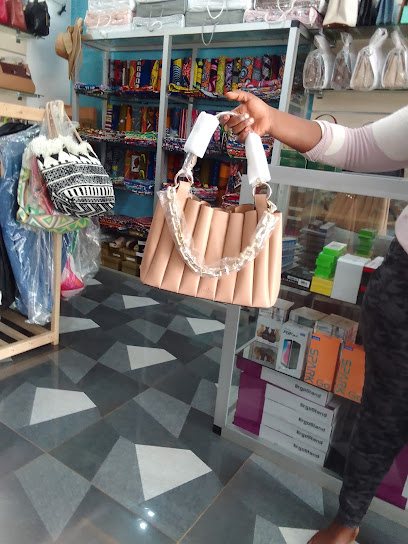
Magazin de livre
Explore the enchanting Magazin de livre in Yamoussoukro, a treasure trove of books perfect for every literary enthusiast.
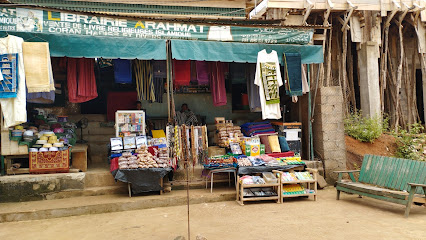
Boutique Delor
Explore local flavors and unique products at Boutique Delor, a charming grocery store in Yamoussoukro, offering a taste of Ivorian culinary delights.
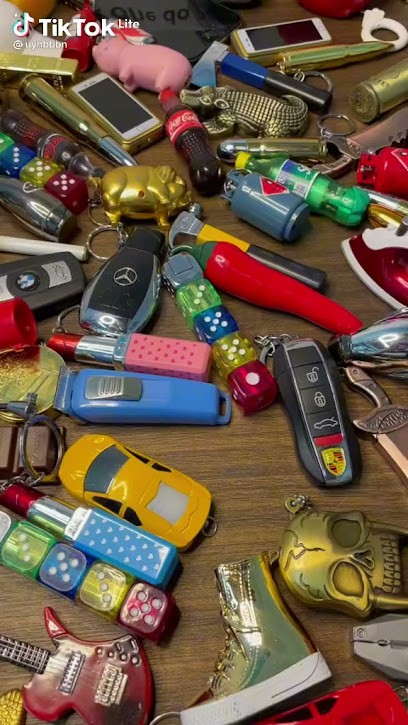
Nickel Boutique
Explore the unique women's fashion offerings at Nickel Boutique in Yamoussoukro, blending local culture with modern trends for a shopping experience unlike any other.
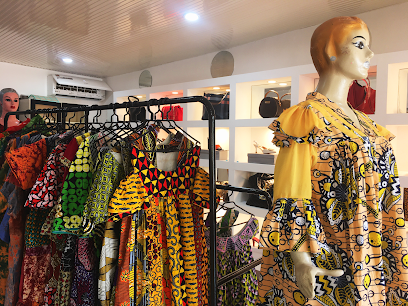
Phytoshop
Explore Phytoshop in Yamoussoukro: A vibrant shopping mall offering a unique blend of local products and cultural experiences.

Essential bars & hidden hideouts
Cyclone Bar
Discover the pulse of Yamoussoukro's nightlife at Cyclone Bar, where vibrant music and refreshing drinks create unforgettable memories.
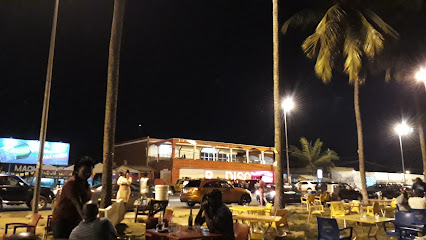
Lion's bar
Discover the vibrant nightlife of Yamoussoukro at Lion's Bar, where refreshing drinks and local charm await every visitor.
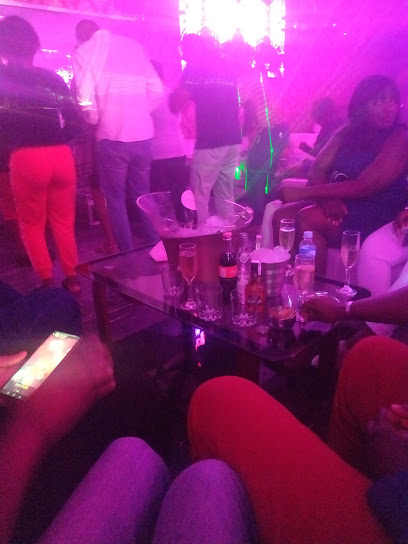
No Stress
Experience the vibrant nightlife of Yamoussoukro at No Stress, where exceptional drinks and a lively atmosphere await.
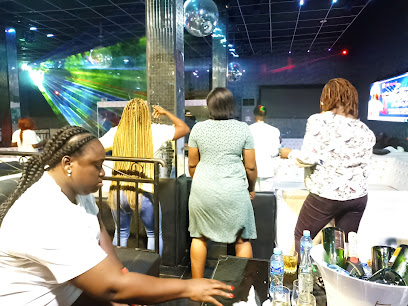
Kassav Bar
Kassav Bar: A lively bar in Yamoussoukro offering local drinks and snacks in a vibrant atmosphere, perfect for tourists seeking authentic cultural experiences.
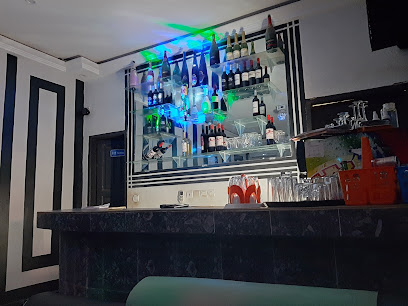
Pyrénées Bar
Explore the vibrant nightlife at Pyrénées Bar in Yamoussoukro, a cultural hub for drinks, music, and unforgettable memories.
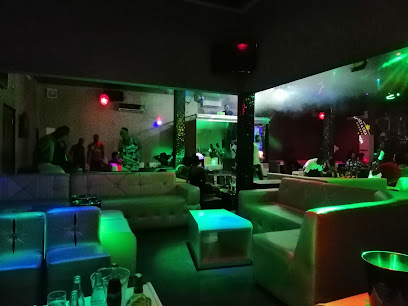
Bar le Prestige VIP
Experience the vibrant nightlife of Yamoussoukro at Bar le Prestige VIP, where great drinks and friendly vibes await every visitor.

LE TUNNEL RESTO & MINI BAR
Discover the charming Le Tunnel Resto & Mini Bar in Yamoussoukro, offering an extensive selection of wines and a cozy atmosphere for relaxation.
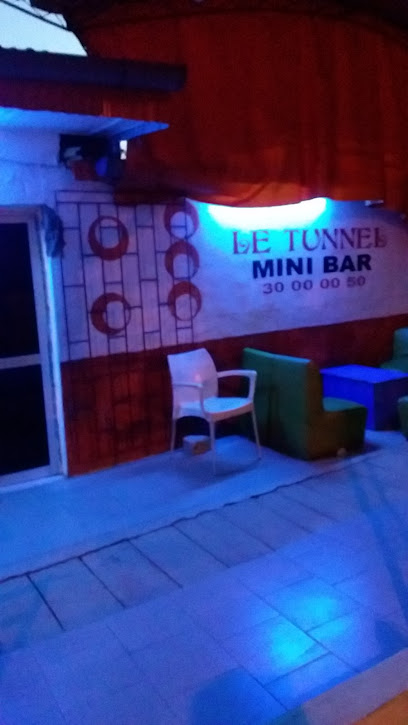
Cave Des Princes
Discover a vibrant nightlife at Cave Des Princes, a charming bar in Yamoussoukro offering a unique atmosphere and diverse drink options.
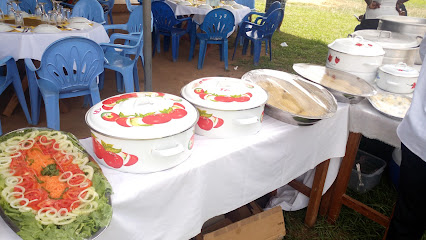
Pression Bar
Discover the vibrant nightlife of Yamoussoukro at Pression Bar, where great drinks and a lively atmosphere await every visitor.
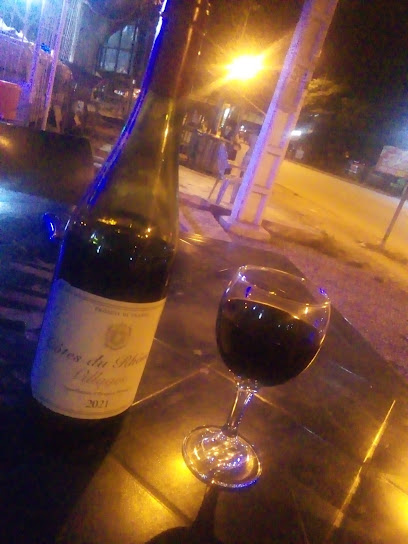
Bar Vip
Discover the lively spirit of Yamoussoukro at Bar Vip, a favorite bar for locals and tourists seeking a fun night out with great drinks and atmosphere.
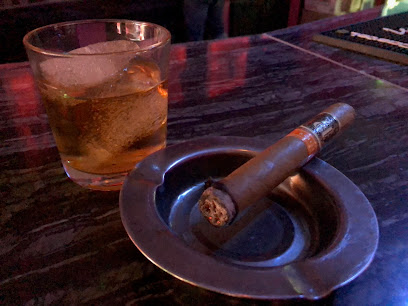
Winners Bar
Discover the lively atmosphere of Winners Bar in Yamoussoukro, a perfect nightlife destination for drinks, music, and mingling.
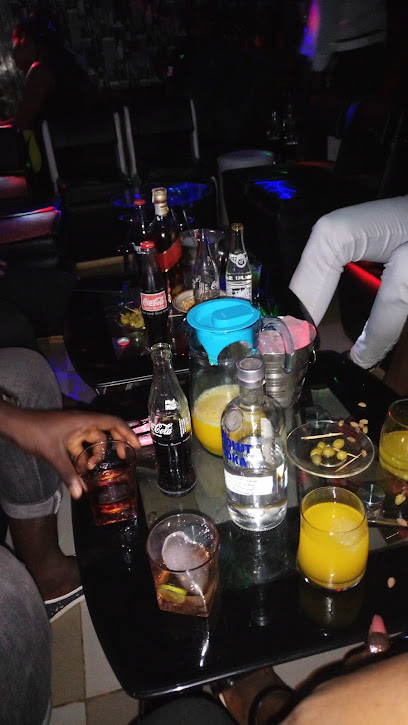
CHANDELIER D'OR
Discover the vibrant nightlife at Chandelier d'Or in Yamoussoukro, where local drinks and a lively atmosphere await you.
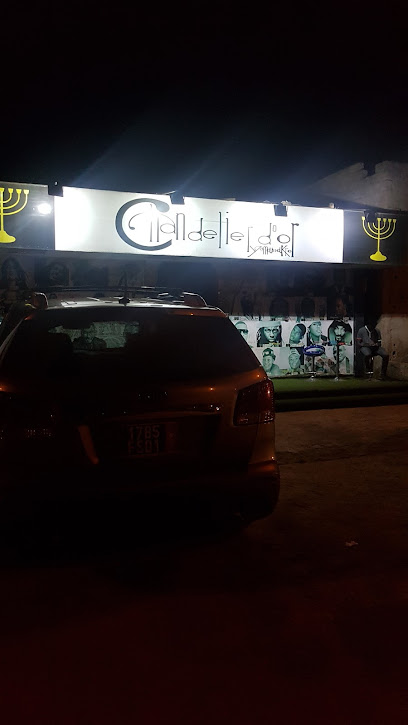
Bamboo Bar
Discover the lively Bamboo Bar in Yamoussoukro, a perfect blend of local culture and refreshing drinks in a cozy atmosphere.
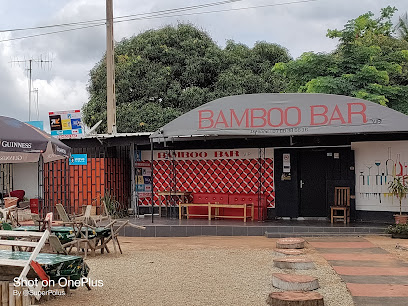
BIKER'S WINE HOUSE
Experience the lively atmosphere and local culture at Biker's Wine House in Yamoussoukro, a must-visit bar for an unforgettable night out.

Local Phrases
-
- HelloAkwaaba
[ak-wa-ba] - GoodbyeDa yie
[da-yie] - YesAane
[aa-ne] - NoDabi
[da-bi] - Please/You're welcomeMesrɛ
[mes-re] - Thank youMedaase
[me-da-se] - Excuse me/SorryDabi
[da-bi] - How are you?Wohu
[wo-hu] - Fine. And you?Edin. Na wo ho?
[eh-din. na wo ho?] - Do you speak English?Wo nni Kasa Ese?
[wo ni ka-sa e-se?] - I don't understandMenni nnidi
[men-ni ni-di]
- HelloAkwaaba
-
- I'd like to see the menu, pleaseMepa wo menu firi, mesrɛ
[me-pa wo me-nu fi-ri, mes-re] - I don't eat meatMenfa nkwan
[men-fa nk-wan] - Cheers!Nwonko
[nwon-ko] - I would like to pay, pleaseMepa wo so, mesrɛ
[me-pa wo so, mes-re]
- I'd like to see the menu, pleaseMepa wo menu firi, mesrɛ
-
- Help!Gye w'ani
[gye wa-ni] - Go away!Firi w'ani
[fi-ri wa-ni] - Call the Police!Kyerɛ abɔfoɔ!
[kye-re a-bo-fo] - Call a doctor!Kyerɛ dokita!
[kye-re do-ki-ta] - I'm lostMinni sɛ megyina
[min-ni se me-gyi-na] - I'm illMinni nnidi
[min-ni ni-di]
- Help!Gye w'ani
-
- I'd like to buy...Mepa wo ...
[me-pa wo ...] - I'm just lookingMenim sɔ
[men-im so] - How much is it?Aduane sɛn?
[ad-wa-ne sen?] - That's too expensiveAduane no yɛ sɛn
[ad-wa-ne no ye sen] - Can you lower the price?Wo pɛ sɛ wɔ ntama so?
[wo pe se wo nta-ma so]
- I'd like to buy...Mepa wo ...
-
- What time is it?Akɔ sɛn?
[a-ko sen] - It's one o'clockOkan
[o-kan] - Half past (10)Abebi
[a-be-bi] - MorningAnɔpa
[an-o-pa] - AfternoonAwia
[aw-ya] - EveningAnadwo
[an-ad-wo] - YesterdayNkrabea
[nkra-be-a] - TodayƐnnora
[en-no-ra] - TomorrowƆsia
[o-sia] - 1Kunu
[ku-nu] - 2Fi
[fi] - 3Nna
[nna] - 4Nnɛ
[nne] - 5Nnuanu
[n-nu-a-nu] - 6Nnanson
[n-nan-son] - 7Nnanum
[n-na-num] - 8Nnanani
[n-na-na-ni] - 9Nnanumun
[n-na-num-un] - 10Munu
[mu-nu]
- What time is it?Akɔ sɛn?
-
- Where's a/the...?Ɛhe ko ...?
[e-he ko] - What's the address?Ɛhe aɛsɛ anaa?
[e-he ae-se a-na] - Can you show me (on the map)?Wo bɛ ka kyerɛ me (a wɔ maap aba)
[wo be ka kye-re me (a wo map a-ba)] - When's the next (bus)?Adeɛ a ... kɔ?
[a-de a ko] - A ticket (to ....)Nkɔtɔ
[n-kot-o]
- Where's a/the...?Ɛhe ko ...?
History of Yamoussoukro
-
Yamoussoukro, originally a small village known as N'Gokro, was founded by the Yamousso people in the 19th century. It was named after Queen Yamousso, a prominent local leader. The village remained relatively obscure until the early 20th century.
-
During the French colonial period, Yamoussoukro began to grow as the French administration established administrative and commercial hubs in the area. The colonial influence brought infrastructural development, including roads and buildings, which laid the groundwork for future expansion.
-
Yamoussoukro is the birthplace of Félix Houphouët-Boigny, the first President of Côte d'Ivoire, who played a pivotal role in the country's independence from France in 1960. His influence and vision for the city would later shape its fate dramatically.
-
In 1983, Félix Houphouët-Boigny declared Yamoussoukro as the official capital of Côte d'Ivoire, replacing Abidjan. This decision was part of his grand vision to develop his birthplace into a modern city that would symbolize national unity and progress.
-
One of the most significant landmarks in Yamoussoukro is the Basilica of Our Lady of Peace, which was constructed between 1985 and 1989. Inspired by St. Peter's Basilica in Vatican City, it is one of the largest churches in the world and a testament to Houphouët-Boigny's ambition and religious devotion.
-
Following the death of Félix Houphouët-Boigny in 1993, Yamoussoukro witnessed a period of relative stagnation. Political instability and economic challenges slowed the city's development. However, it remains a symbolic capital and a site of historical importance.
-
Today, Yamoussoukro is a blend of historical significance and cultural heritage. It houses important educational institutions like the Lycée Scientifique, as well as traditional Ivorian art and crafts markets. The city's unique blend of modern architecture and traditional culture makes it a fascinating destination for visitors.
Yamoussoukro Essentials
-
Yamoussoukro is the political capital and the fourth largest city of Côte d'Ivoire. The nearest major airport is Félix-Houphouët-Boigny International Airport (ABJ) in Abidjan, approximately 240 kilometers away. From Abidjan, you can take a domestic flight, a bus, or a private taxi to Yamoussoukro. The bus journey typically takes around 3 to 4 hours, while a taxi ride might be faster but more expensive.
-
Yamoussoukro is a moderately sized city, and many of its attractions are within a reasonable distance from each other. Taxis are the most common form of transport and are relatively inexpensive. There are also minibuses (gbakas) that operate on fixed routes within the city and to surrounding areas. For more flexibility, you can rent a car, though driving conditions can be challenging for those unfamiliar with local traffic rules.
-
The official currency in Côte d'Ivoire is the West African CFA franc (XOF). Credit cards are accepted in some hotels, restaurants, and larger stores, but it is advisable to carry cash, especially when visiting smaller establishments or markets. ATMs are available in Yamoussoukro, but it is wise to withdraw sufficient cash in larger cities like Abidjan before traveling.
-
Yamoussoukro is generally considered safe for tourists, but it is important to take standard precautions. Avoid walking alone at night in unfamiliar areas and keep an eye on your belongings in crowded places. Certain neighborhoods may have higher crime rates, particularly those on the outskirts of the city. Always stay vigilant and aware of your surroundings, and consult with locals or your hotel for up-to-date advice on safe areas.
-
In case of emergency, dial 170 for police, 180 for fire services, and 185 for medical emergencies. Yamoussoukro has a central hospital and several clinics for medical assistance. It is highly recommended to have travel insurance that covers medical emergencies. For minor health issues, pharmacies are available, where you can purchase over-the-counter medications.
-
Fashion: Do dress modestly, especially when visiting religious sites. Avoid wearing overly revealing clothing. Religion: Do respect local customs and traditions. Remove your shoes and cover your head when entering religious sites. Public Transport: Do be respectful and give up your seat to elderly passengers. Don’t eat or drink on public transport. Greetings: Do greet people with a handshake and a smile. Using the right hand is considered polite. Eating & Drinking: Do try local delicacies and accept food offerings graciously. Don’t refuse hospitality, as it is considered impolite.
-
To experience Yamoussoukro like a local, visit the local markets where you can buy fresh produce and traditional Ivorian goods. Engage with locals, as they are often friendly and willing to share stories about the city's history and culture. Don't miss visiting the Basilica of Our Lady of Peace, one of the largest churches in the world. For a unique experience, take a stroll around the Presidential Palace and its surrounding crocodile-filled lagoon.
Nearby Cities to Yamoussoukro
-
Things To Do in Daloa
-
Things To Do in Abidjan
-
Things To Do in Sassandra
-
Things To Do in San-Pédro
-
Things To Do in Sunyani
-
Things To Do in Sanniquellie
-
Things To Do in Kumasi
-
Things To Do in Ganta
-
Things To Do in Takoradi
-
Things To Do in Sekondi-Takoradi
-
Things To Do in Gbarnga
-
Things To Do in Wa
-
Things To Do in Cape Coast
-
Things To Do in Bobo-Dioulasso
-
Things To Do in Voinjama






